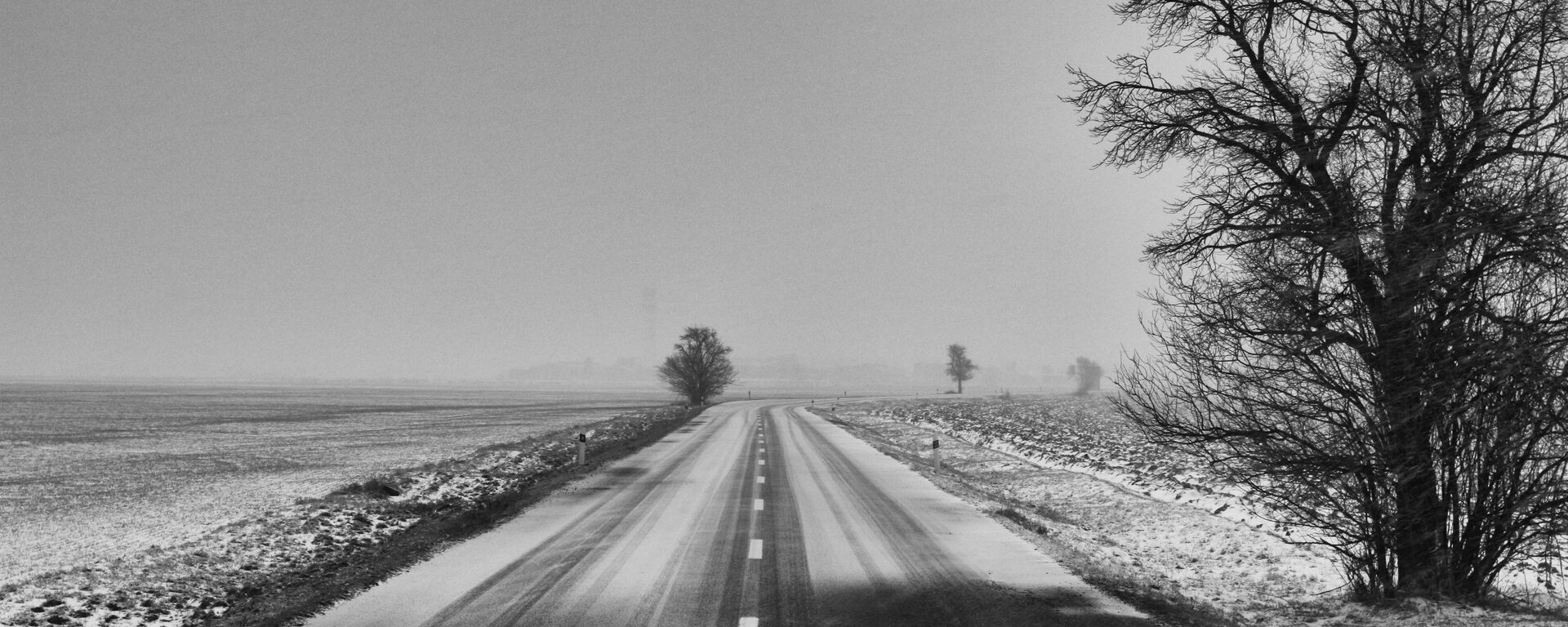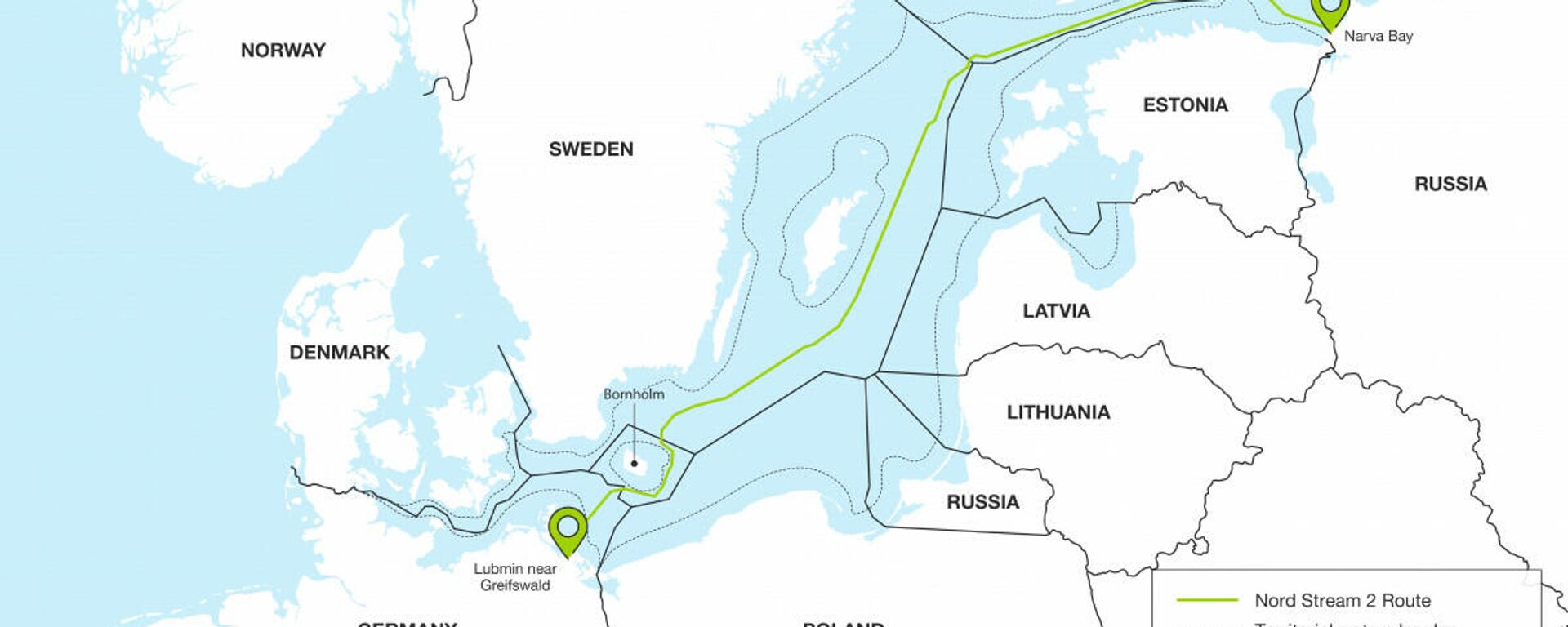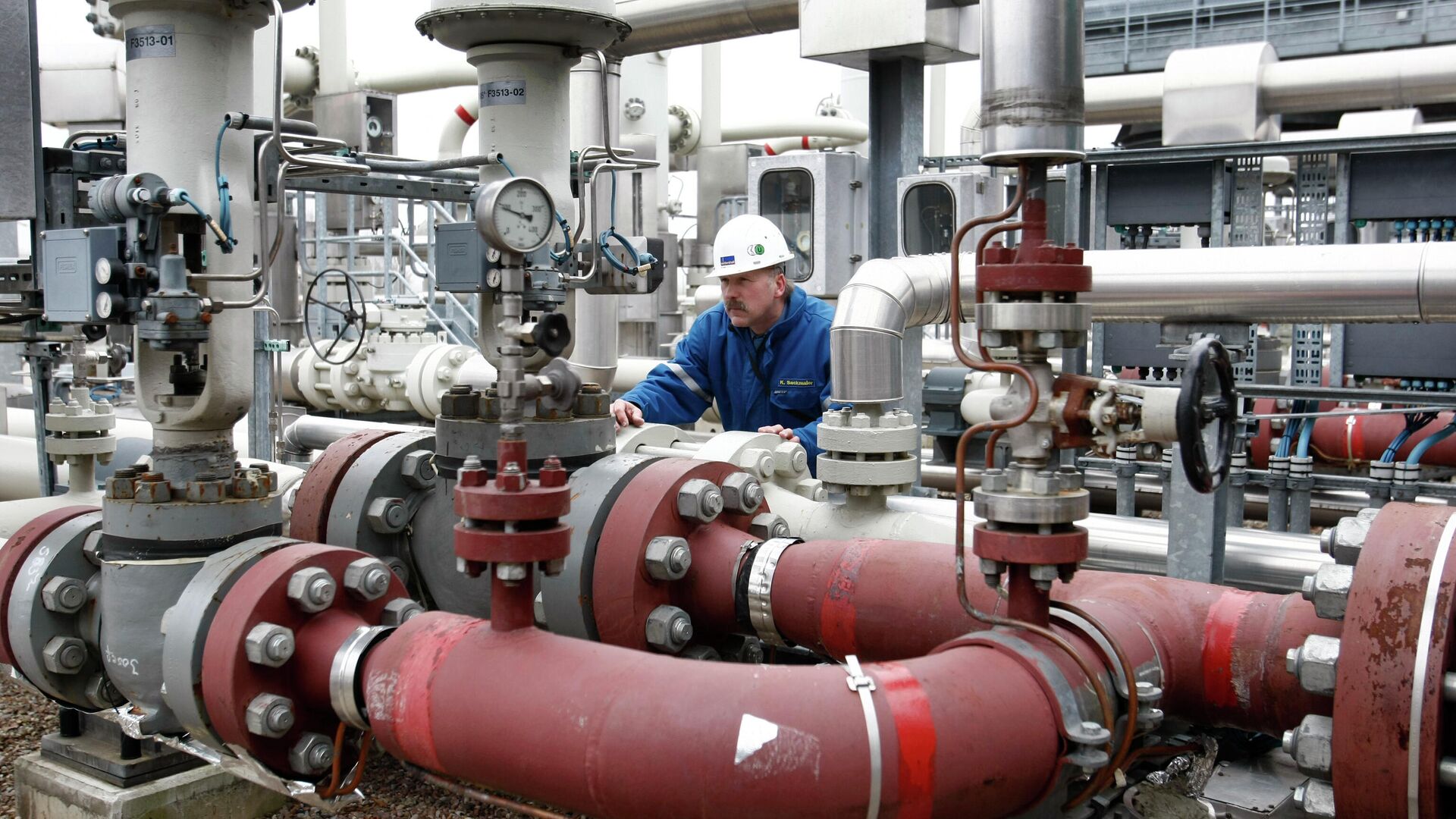https://sputnikglobe.com/20211216/germanys-gas-reserves-plummet-to-record-low-as-nord-stream-2-left-on-ice-1091574081.html
Germany’s Gas Reserves Plummet to Record Low as Nord Stream 2 Left on Ice
Germany’s Gas Reserves Plummet to Record Low as Nord Stream 2 Left on Ice
Sputnik International
The joint Russian-European Nord Stream 2 gas pipeline has been completed and prepared to start pumping gas from Russia to Germany along the bottom of the... 16.12.2021, Sputnik International
2021-12-16T12:30+0000
2021-12-16T12:30+0000
2022-10-19T21:19+0000
reserves
germany
gas
nord stream 2
https://cdn1.img.sputnikglobe.com/img/07e5/0c/10/1091573767_0:182:3072:1910_1920x0_80_0_0_1f9065f4f6f714011035e260d361fe04.jpg
Germany’s underground gas storage reserves have dropped to below 60 percent, a “historically low level” for the start of winter, Sebastian Bleschke, managing director of INES, the association of German gas storage system operators, has warned.Berlin has sought to partially offset potential shortages by seeking new supply contracts for LNG.Germany and other European nations have reported unusually low reserves of natural gas in their underground gas storage facilities in recent months, with shortages causing a dramatic spike in spot prices on the open market, and efforts by officials and specialists to attribute scarcity to factors ranging from alleged Russian malevolence to poor planning of the region’s energy balance.Russian gas giant Gazprom has expressed concern over the low supply levels at European countries’ underground gas storage facilities, calculating last week that almost a quarter of the volume of fuel pumped into the reserves has already been pumped out again.US officials have blamed Russia for the shortages, alleging that Gazprom was underutilizing its supply capabilities. Moscow dismissed the claims, pointing to years of US efforts to sabotage the Nord Stream 2 pipeline, which could have been operational by now and pumping as much as 55 billion cubic meters of additional gas per year to Germany had it not been for Washington’s sanctions.In October, Russian President Vladimir Putting emphasized that Russia has made good on all its supply commitments to European gas customers, and was prepared to sign new contracts on the supply of additional gas to the region. Putin blamed the current supply crunch on a range of factors, including EU policymakers’ preference for short-term contracts, the unusually cold winter and spring of 2020-2021, excessive dependence on unproven alternative forms of energy, cutthroat competition for gas with a roaring Asian market, and an inexplicable failure by many European states to stock up on gas in the summer months.Despite the danger of shortages in Germany and other European markets, German regulators continue to hold up the certification of Nord Stream 2 –which was completed and filled with gas in the fall but remains unable to begin operating without regulatory approval.On Thursday, Bloomberg reported, citing informed sources, that a decision on Nord Stream 2’s certification would not be made in the first half of 2022, meaning the pipeline will not be used to increase supplies or ease price pressure in the coming months.Earlier this week, Austrian Chancellor Karl Nehammer told media that he opposed any attempts to link Nord Stream 2 to the crisis between Russia and the West over Ukraine, and said he expects the project to be launched “soon” and as planned.Five Western European energy companies, including Austria’s OMV, Germany’s Uniper and Wintershall, France’s Engie and Royal Dutch Shell are partnered with Russia’s Gazprom on Nord Stream 2. Construction of the pipeline network was on the brink of completion in late 2019 before the US slapped sanctions on the project, with Western contractors threatened with “crushing and potentially fatal” restrictions pulling out. Washington’s decision resulted in the project’s completion being delayed by over a year. In July, the Biden administration reached an agreement with Germany to drop restrictions against the project, but threatened new penalties on the basis of Russia’s “behaviour.”Last week, the Financial Times reported that the new German coalition government was in favour of Nord Stream 2, but may halt the project in the event of a ‘Russian invasion of Ukraine’. Moscow has repeatedly dismissed claims that it’s preparing to attack its neighbour, and has accused the Kiev government of building up forces near the breakaway republics in Ukraine’s east to potentially try to solve the frozen conflict there by force.
https://sputnikglobe.com/20211006/cold-winter-drained-europes-gas-reserves-helping-to-create-current-crisis-putin-says-1089709034.html
https://sputnikglobe.com/20211006/russian-deputy-prime-minister-says-nord-stream-2s-completion-will-help-cool-situation-on-gas-market-1089716832.html
germany
Sputnik International
feedback@sputniknews.com
+74956456601
MIA „Rossiya Segodnya“
2021
News
en_EN
Sputnik International
feedback@sputniknews.com
+74956456601
MIA „Rossiya Segodnya“
Sputnik International
feedback@sputniknews.com
+74956456601
MIA „Rossiya Segodnya“
reserves, germany, gas, nord stream 2
reserves, germany, gas, nord stream 2
Germany’s Gas Reserves Plummet to Record Low as Nord Stream 2 Left on Ice
12:30 GMT 16.12.2021 (Updated: 21:19 GMT 19.10.2022) The joint Russian-European Nord Stream 2 gas pipeline has been completed and prepared to start pumping gas from Russia to Germany along the bottom of the Baltic Sea. However, the dual pipeline system still needs the approval of German and European regulators, who have threatened to put off certification until well into next year.
Germany’s underground gas storage reserves have dropped to below 60 percent, a “historically low level” for the start of winter, Sebastian Bleschke, managing director of INES, the association of German gas storage system operators, has warned.
“Since the actual winter is still ahead, the comparatively low reserves should certainly be handled carefully,” Bleschke
said, speaking to Handelsblatt in an interview published Thursday. “If withdrawal [from the reserves] continues at its current pace, the reserves will be very low in February,” the official added.
Berlin has sought to partially offset potential shortages by seeking new supply contracts for LNG.
Germany and other European nations have reported unusually low reserves of natural gas in their underground gas storage facilities in recent months, with shortages causing a dramatic spike in spot prices on the open market, and efforts by officials and specialists to attribute scarcity to factors ranging from alleged Russian malevolence to poor planning of the region’s energy balance.
Russian gas giant Gazprom has expressed concern over the low supply levels at European countries’ underground gas storage facilities, calculating last week that almost a quarter of the volume of fuel pumped into the reserves has already been pumped out again.
US officials have blamed Russia for the shortages,
alleging that Gazprom was underutilizing its supply capabilities. Moscow dismissed the claims, pointing to years of US efforts to sabotage the Nord Stream 2 pipeline, which could have been operational by now and pumping as much as 55 billion cubic meters of additional gas per year to Germany had it not been for Washington’s sanctions.
In October, Russian President Vladimir Putting
emphasized that Russia has made good on all its supply commitments to European gas customers, and was prepared to sign new contracts on the supply of additional gas to the region. Putin blamed the current supply crunch on a range of factors, including EU policymakers’ preference for short-term contracts, the unusually cold winter and spring of 2020-2021, excessive dependence on unproven alternative forms of energy, cutthroat competition for gas with a roaring Asian market, and an inexplicable failure by many European states to stock up on gas in the summer months.

6 October 2021, 11:51 GMT
Despite the danger of shortages in Germany and other European markets, German regulators continue to hold up the certification of Nord Stream 2 –which was completed and filled with gas in the fall but remains unable to begin operating without regulatory approval.
On Thursday, Bloomberg
reported, citing informed sources, that a decision on Nord Stream 2’s certification would not be made in the first half of 2022, meaning the pipeline will not be used to increase supplies or ease price pressure in the coming months.
Earlier this week, Austrian Chancellor Karl Nehammer
told media that he opposed any attempts to link Nord Stream 2 to the crisis between Russia and the West over Ukraine, and said he expects the project to be launched “soon” and as planned.

6 October 2021, 15:55 GMT
Five Western European energy companies, including Austria’s OMV, Germany’s Uniper and Wintershall, France’s Engie and Royal Dutch Shell are partnered with Russia’s Gazprom on Nord Stream 2. Construction of the pipeline network was on the brink of completion in late 2019 before the US slapped sanctions on the project, with Western contractors threatened with “crushing and potentially fatal” restrictions pulling out. Washington’s decision resulted in the project’s completion being delayed by over a year. In July, the Biden administration reached an agreement with Germany to drop restrictions against the project, but threatened new penalties on the basis of Russia’s “behaviour.”
Last week, the Financial Times
reported that the new German coalition government was in favour of Nord Stream 2, but may halt the project in the event of a ‘Russian invasion of Ukraine’. Moscow has repeatedly dismissed claims that it’s preparing to attack its neighbour, and has accused the Kiev government of building up forces near the breakaway republics in Ukraine’s east to potentially try to solve the frozen conflict there by force.



